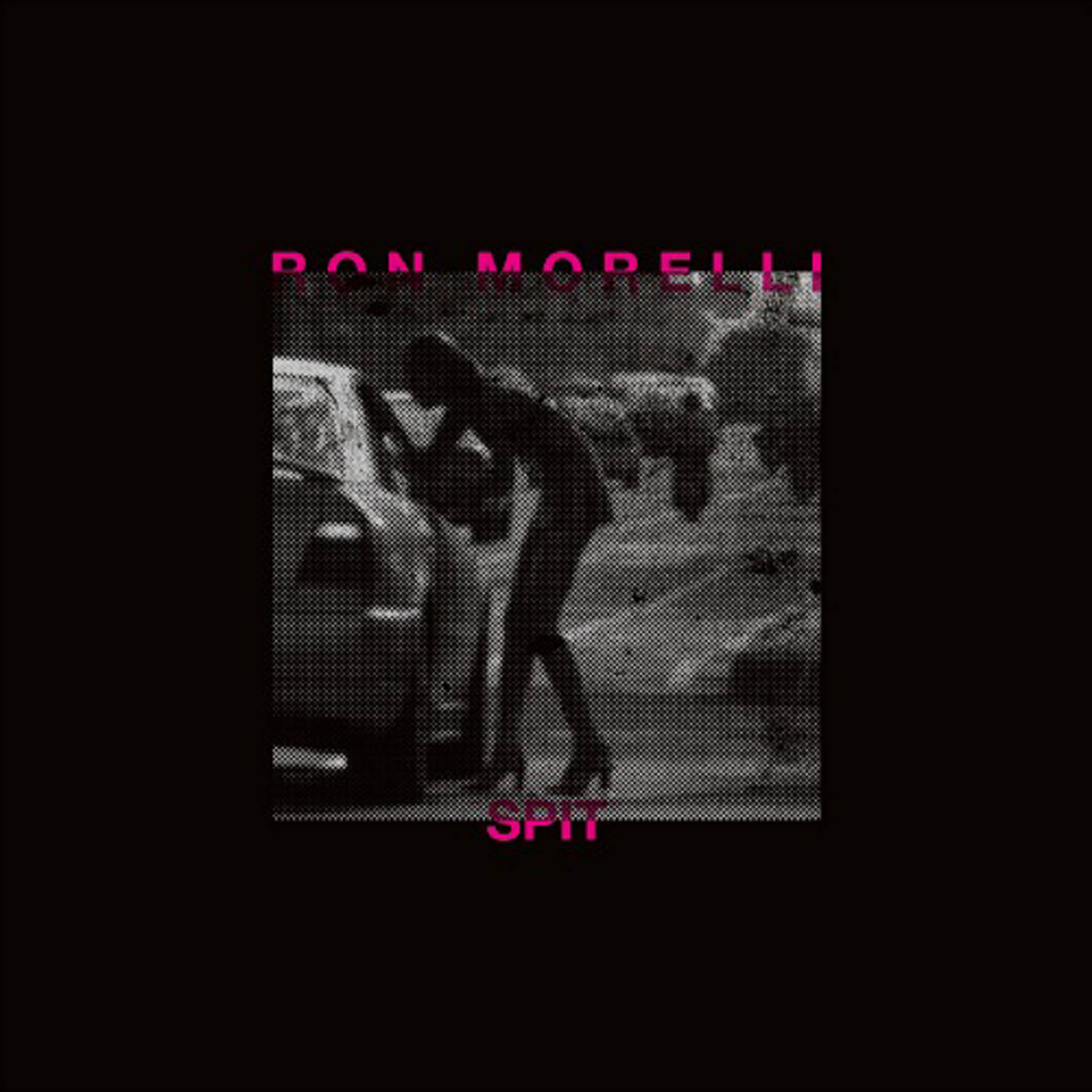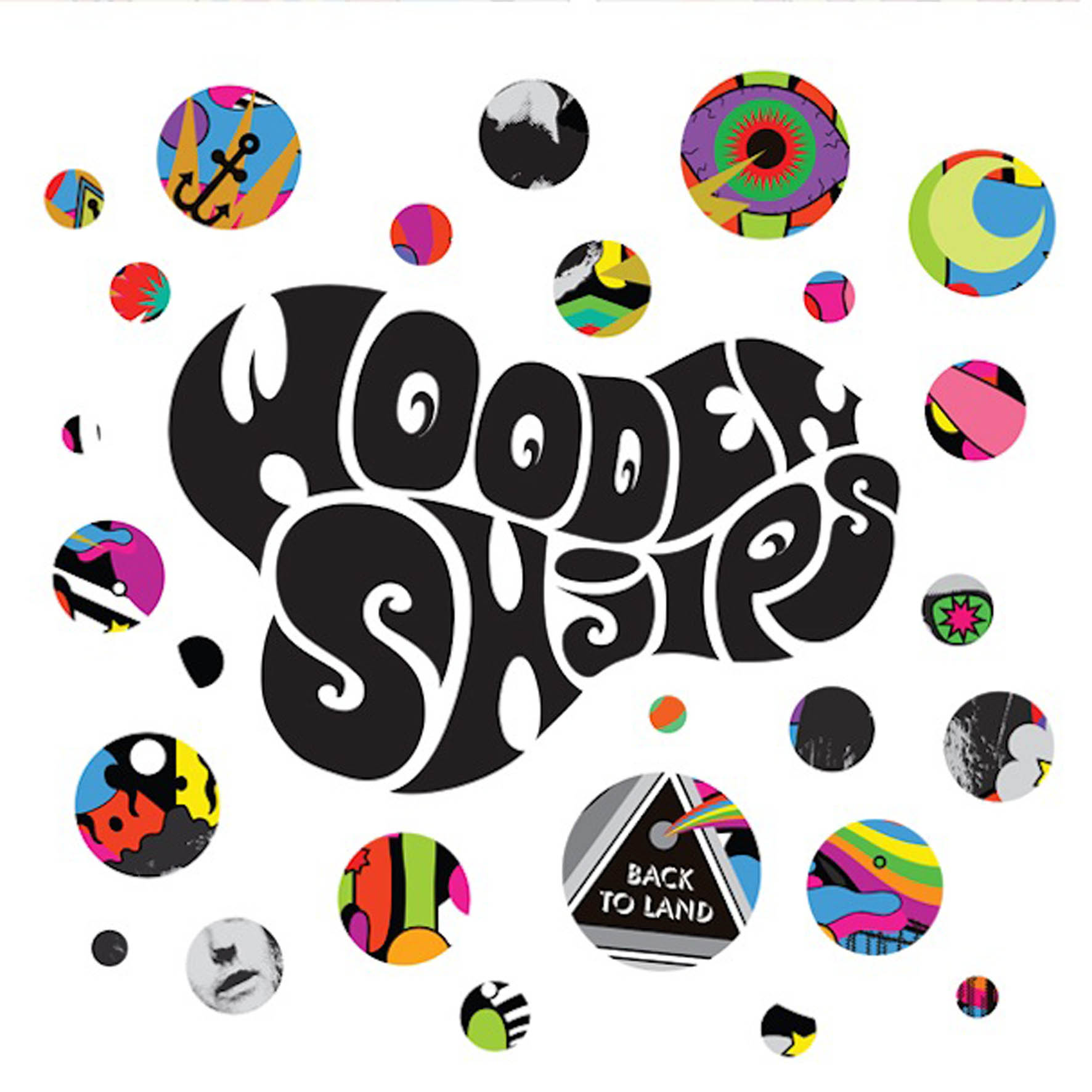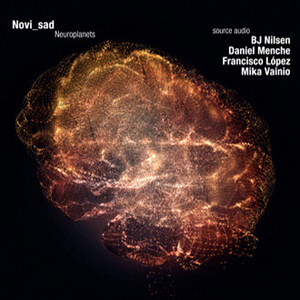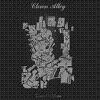- Administrator
- Albums and Singles

Artist: Machinefabriek
Title: Veldwerk
Catalogue No: CSR156CD
Barcode: 8 2356650642 3
Format: CD in digipak
Genre: Drone / Ambient / Field Recordings
Shipping: 21st November
Pre-Order CD
Sublime drone music and field recordings by Rutger Zuydervelt. 'Slovensko I & II' are best seen as a travel diary, recorded in Slovakia. RZ made 'sound snapshots' with a small digital recorder. A major influence both while recording and assembling the tracks was Chinese sound artist Yan Jun. 'Rusland' is a sound collage comprising field recordings and sections of live performances made in Russia. An incredible adventure and culture shock with long train journeys, bizarre venues and amazing people. 'The Breaking Water' can be heard as a sonic portrait of Rotterdam's famous Erasmus bridge. It includes recordings taken from both on and beneath the bridge, along with further sounds from the river that it crosses, the Nieuwe Maas. 'Floor & Radio' is a contrast to the outdoor pieces recorded for the the installation 'Licthung' in Radolfzell, Germany. Contrasted against the outdoor silence was the squeaking floor in the guest house and the distorted signal and static from the radio. Sometimes there's music in everything. Makino Takashi asked RZ to perform a score for his film 'In Your Star'. After a screening in Tokyo, a studio version was recorded. The result is 'Apollo', a sonic journey to space and beyond. Digipak.
Tracks: 1. Slovensko I (7:04) | 2. Rusland (17:01) | 3. The Breaking Water (9:57) | 4. Floor & Radio (5:12) | 5. Apollo (21:17) | 6. Slovensko II (7:00)
Read More
- Administrator
- Albums and Singles

This is kind of an excitedly anticipated album in some circles, as it is the first solo release from the man behind the influential L.I.E.S. imprint.  Morelli's resume is deceptive, however, as Spit is a very backwards-looking, primitive affair rather than a dispatch from the cutting edge or a bold statement of intent.  That said, it is still quite a likable one–it just sounds more like a home-recorded industrial experiment from early '80s Sheffield or Manchester than anything resembling underground dance music circa 2013.
Morelli himself has been quite open about Spit's humble origins, describing it as "stress music jammed out quick and recorded," which is exactly what it sounds like in some ways: it is very grimy, simple, and direct.  In other ways, however, it is a lot better than that sounds, as almost all of these bashed-out variations are built upon very good ideas and there are occasional flashes of playfulness and humor to be found as well.  Also, some pieces are legitimately bludgeoning and heavy, such as the unrelenting machine-like crunch of "Sledgehammer II." If Spit has a shortcoming, it is only that Morelli never allows any of these pieces to expand or evolve beyond their initial motif.
The "Sledgehammer II" vein turns out to be one of the most fruitful threads on the album, as Morelli successfully returns to heavy mechanized rhythms two more times with "No Real Reason" and "Crack Microbes" (which sounds like a darker, blown-out twist on Nurse With Wound's "Steel Dream March of the Metal Men").  Aside from those, the other highlights come right at the beginning of the album, with the brooding, throbbing, and plunging "Radar Variations" and the absurd polka-beat-preset-on-an-old-Casio groove of "Modern Paranoia."  I especially loved the wobbling, sickly, out-of-control synth anti-hook in the latter.
The remainder of Spit is a bit of an unpredictable and perverse mixed bag.  "Slow Drown," for example, is a bit of grinding metallic ambiance, while "Fake Rush" is one of Morelli's ostensible "House variations," though it amusingly undermines its groove with a queasily disorienting and obsessively repeated non-hook.  The most aberrant piece of all, however, is the brief "Director Of...," which combines a jarringly pitch-shifted and willfully annoying synth "hook" with echo-heavy, distorted voices.  I probably would not describe either "Fake Rush" or "Director" as "good," but they are at least interesting and unusual.
I am very curious to see how this album goes over, as I enjoyed it quite a bit, but I tend to enjoy both early '80s industrial and deliberate obnoxiousness much more than most people.  Also, the small pleasures of Spit might be curdled for some people by their expectations, which is a shame, as this album would probably be universally hailed as a minor masterpiece if it were an obscure reissue by Minimal Wave rather Ron Morelli's debut album.  Obviously, I would love to hear what Ron could do if he put some serious time and effort into his work, but that might be a way off, as Hospital already has two sequels in the pipeline.  For now, however, Spit's ramshackle, tossed-off spontaneity is quite endearing in its own right.
 
 
Read More
- Administrator
- Albums and Singles
 This is a bit of a surprising album, as it finds one of American's premiere psych-rock bands noticeably toning down the more psych-inspired aspects of their work in favor of a more sun-dappled, spacious strain of rock.  Fortunately, that move towards a cleaner, more melodic sound coincides with an impressive leap forward in their songwriting, resulting in a handful of great, memorable songs amidst all the newly subtle Spacemen 3/Suicide/Hawkwind worship.  The full album is still a bit too formulaic overall for my liking, but the Shjips demonstrate they know how to craft a killer single or two.
This is a bit of a surprising album, as it finds one of American's premiere psych-rock bands noticeably toning down the more psych-inspired aspects of their work in favor of a more sun-dappled, spacious strain of rock.  Fortunately, that move towards a cleaner, more melodic sound coincides with an impressive leap forward in their songwriting, resulting in a handful of great, memorable songs amidst all the newly subtle Spacemen 3/Suicide/Hawkwind worship.  The full album is still a bit too formulaic overall for my liking, but the Shjips demonstrate they know how to craft a killer single or two.
Back to Land is the sort of album that makes me nostalgic for the wide-eyed innocence of my life before I became a music critic, when I could just enjoy an album without thinking about it too much.  I suspect that the old me would have liked Back to Land a lot more than the current me, as Wooden Shjips sound great doing what they do.  Unfortunately, my initial thrill with the opening title track began to yield diminishing returns as its formula was repeated again and again as the album unfolded.
It is hard to objectively say whether that is my problem alone, but this is certainly an album where the seams show: most of these songs are built upon little more than a simple, obsessively repeating, Suicide-style organ pattern (though it is sometimes transposed to guitar or bass).  Admittedly, the Shjips pull off a neat trick in appropriating Suicide's aesthetic wholesale and translating it into something resembling driving classic rock, but once I noticed the rigid template, I could not stop noticing it.  These are all quite catchy, propulsive songs, but they are mostly obvious variations on roughly the same catchy, propulsive root.
There are admittedly some divergences though, which are delivered with varying degrees of success.  The fairly straightforward rock of the breezy "These Shadows" is the least interesting of the lot, though it is still pleasant–there just is not anything for more outré-minded music fans like myself to grab onto at all.  "Other Stars," on the other hand, is just flat-out Hawkwind channeling: there is a simple groove and some space-y flanging and not much else. On the bright side, Wooden Shjips happily avoid Hawkwind's heavy-handedness, wild indulgence, and frequent ridiculousness, so it is not wasted effort.  The last aberration, however, turns out to be the album's absolute high point: the closing "Everybody Knows."  Like the aforementioned "These Shadows," it is essentially another straightforward rock song, but everything about it is great: the pace, the vocal melody, the chord progression, the bittersweet organ hook–just...everything.  It is easily one of my favorite songs of the year.
Back to Land's other great song is one of the omnipresent rockin' Suicide pastiches: "Servants," a piece that beautifully illustrates how many unexpected variables are involved in getting a song just right.  In fact, the only real difference between it and Back to Land's lesser variations seems to be its pace.  While it admittedly boasts a better-than-average vocal hook, most of its magic occurs simply because its somewhat druggy, slowed-down speed is ideal for turning the endlessly repeating bass line into something quite mesmerizing.
I suspect a lot of people will like this album a lot more than I do, owing to my extreme and perhaps irrational sensitivity to overt-influence-wearing and rigid formulas.  I still do like this album a lot though–I just choose to see Wooden Shjips as more of a "singles band."  I also suspect that some people will be very disappointed in the Shjips' decision to step away from psychedelia a bit, but it is not like they had a totally unique sound that they willfully compromised for increased popularity.  Rather, they merely downplayed their genre tropes to let in a bit more personality and songcraft, a transition that is off to an extremely promising beginning.
 
Read More
- Administrator
- Albums and Singles
 Thanasis Kaproulias has been quietly building an impressive repertoire of conceptual sound art releases for the past few years. Neuroplanets may perhaps be the most varied and complex release yet, by not only utilizing source material from four titans of the field (BJ Nilsen, Daniel Menche, Francisco Lopez and Mika Vainio) but also applying data from neurological and astronomical research into his compositions. The end product is something that sounds more like a collaboration where the original artists’ sound is measurable, but also Kaproulias' reworking as well.
Thanasis Kaproulias has been quietly building an impressive repertoire of conceptual sound art releases for the past few years. Neuroplanets may perhaps be the most varied and complex release yet, by not only utilizing source material from four titans of the field (BJ Nilsen, Daniel Menche, Francisco Lopez and Mika Vainio) but also applying data from neurological and astronomical research into his compositions. The end product is something that sounds more like a collaboration where the original artists’ sound is measurable, but also Kaproulias' reworking as well.
Unlike his last release for the label, Inhumane Humans, Novi_sad does not work with as much overt noise and dissonance, although those things do crop up tastefully throughout.The first piece allows BJ Nilsen's careful, understated touch to sound to be prevalent in the form of buzzing and ghostly passages of sound drifting through, occasionally bringing along the hint of a melody that slowly dissipates into the ether.Eventually the piece builds to a dense and heavy blast of digital noise, but used as a tasteful climax rather than an overused stylistic choice.
In more of a departure, the material provided by Daniel Menche sticks to the high end of the spectrum, and also has the sound of being recorded in a massive, abandoned warehouse.Considering Menche's work is so often of a very organic nature, and heavy on the bass, it is a different recording than I was expecting.The piece (meshed with data of plasma waves from NASA and patterns of music agnosia) ends up with a denser, heavier sound that is more of a product of its spaciousness rather than the actual abrasiveness of the sound, as counterintuitive as that may sound.
Kaproulias' work with material from Francisco Lopez demonstrates the Spanish composer’s touch early on, with near silence and subsonic rumbles to slowly build the work from almost nothing.However, the collaborative element becomes clear when metallic, grinding rhythmic scatters and noises appear, locked into some sort of ersatz rhythm that becomes sharper as the piece clicks on.By the end, it sounds like a recording from within a factory, with all associated noise and distortion.
The final composition is built on recordings from Pan Sonic's Mika Vainio in a work dense with digital noise and what sounds like bits of a malfunctioning guitar cable.There is a heavy electronic sheen to everything, and with the use of guitar-resembling sounds it fits with Vainio's recent works.Throughout this piece there are rising and falling ultra sonic blaststhat are balanced by more peaceful, shimmering sounds, but ending the piece in a rather painful outburst due to the processing of Kaproulias.
How exactly the use of neurological and astronomical data shaped these four compositions is not at all clear.Being that it is not too difficult to hear the source material Kaproulias used from other artists, my curiosity of course was to how the processing was handled.Knowing the answer to that is not a necessity, however, and Neuroplanets is a strong piece of occasionally harsh sound exploration even without its conceptual trappings and appearances by other artists.Novi_sad's work sounds even more singular and self assured than before, with him firmly establishing himself amongst the most noteworthy artists in the field.
samples:
 
Read More
- Administrator
- Albums and Singles
 Reissued in mono, Dino Valenti's solo album is a heady mix of sparse melodic guitar and his idiosyncratic cocksure crooning, both benefiting from brilliant production that balances ego and echo.
Reissued in mono, Dino Valenti's solo album is a heady mix of sparse melodic guitar and his idiosyncratic cocksure crooning, both benefiting from brilliant production that balances ego and echo.
Chester Powers—aka Dino Valenti—grew up in carnivals before he played in the Greenwich Village folk scene of Karen Dalton et al. His voice is as much an acquired taste as hers. At the extreme he does tip into bizarre caterwauling but mostly his powerful self-belief carries these tunes even during the meandering sections, even when his attempt to keep time seems loose and he appears to be making words up as he goes along. The skill of Bob Johnston's production lets Valenti's talent shine, even through the clouds of his massive ego. This benign approach apparently began before a note was recorded, with the notoriously difficult singer coaxed into a comfortable and indestructibly confident mood by a producer clever enough to spend the first two days in the studio just building and flying paper airplanes. At times Johnston bathes Valenti's voice in echo and makes his 12 string guitar shimmer quite gloriously. The music swirls around those two elements with only occasional strings and drums added, with the voice sweeping through sublime passages.
Here and there the pretty guitar breaks into a brash chop giving credence to the notion that Valenti influenced Ritchie Valens. He certainly did write a 1960s hit single synonymous with notions of West Coast personal freedom, but sold the rights to finance a court defense to get out of prison. His talent was such that Jack Nitzsche produced a whole album of his material—of which the shorter track, "Tomorrow," perhaps gives a tantalizing glimpse—that Valenti subsequently scrapped for artistic reasons. It seems a slow commercial suicide was compounded by his alienation of record company executives, arrogance towards other musicians, and unprofessional attitude.
Nevertheless, tales of his appeal are legendary with fans queuing around several blocks at the hint of his presence and a large female entourage following him around. He died in 1994, this was his only solo record, and (depending on who you believe) his record company brought in a producer to fulfil a contract and get something, anything, out of Dino Valenti to subsequently bury and even release with his name misspelled. The songs "Time," "Listen to Me," and "Children of The Sun" are mesmerizing and unforgettable, weaving a strange power that rises above hippy lingo, simplistic idealism, images of beaches and stars, themes of morning, rebirth, and freedom, and even above Valenti's almost comically resolute testimony that the best, most perfect relationship must have him in it. Still, who cannot warm to a man of whom, according to his sister, Catherine, the US Air Force once wrote "Chester Powers is capable of doing anything he sets his mind to, however, he thinks that the whole United States Air Force should conform to his way of thinking."
 
Read More
- Administrator
- Albums and Singles
New CD(r), in handmade cover with woodcut and linocut print.
One long track (1hour, 6 minutes 16 seconds):
Weather-beaten time
Exhausted
Returns through crimson spread
It's towering body
Makes deepest twitching night young.
Sliding on whirlpool dreams
Gallops decomposing transmutations away.
Dark-cloaked ignition pillars
Move each creviced moment
Through farmer's saw-toothed snores
Around infant whimpers,
As goose and gander
Stand asunder
On yelping canal banks.
price € 20,- includes shipping from: www.aranos.org
Read More
- Administrator
- Albums and Singles

The Iron Soul of Nothing will be released on 11/29/11 by Ideologic Organ.
Finally, available now as double vinyl set this is a must for fans of both of these legendary sonic travelers: Steven Stapleton & Colin Potter twist SUNN O)))’s 2000 album “ØØVOID” inside out on Nurse’s dissection table.
"In 2007 we commissioned Nurse With Wound to re-work the masters of SUNN O)))’s second album “ØØVOID” to be included as a bonus CD on the Japanese reissue of said album released a year later on Daymare Recordings. We dug up the original 2" reels from the 2000 session, had Mell Dettmer bake the tapes, made the multitrack transfers and send the drive over to IC studios. The intial brief was to hopefully come up with to come up with something in the veiin of Nurse’s legendary Soliloquoy for Lilith set (my favorite release of the collective). What was returned was way beyond our expectations, completely transformed and rediscovered material, including highlighting formerly obscured vocals of the legendary Pete Stahl (Scream, Wool, Goatsnake). A vast creepy sonic journey some part drone/depth of SUNN O))), other part concrete weirdness of Nurse, third part just downright out there in surreality and obscure referencing." —Stephen O'Malley
More information here.
Read More
- Administrator
- Albums and Singles
The most important audio recording released in the nineties wasn't a collection of songs by a self-tortured alternative star. The most important recording released in the grunge era was entitled SHUT UP LITTLE MAN! It was a covert audio recording of two older drunken men living in a small flat in San Francisco, who spent their available free time yelling, screaming, hitting and generally abusing each other.
The phenomenon began in 1987 when Eddie and Mitch (two young punks from the Mid West), moved next door to Peter Haskett (a flamboyant gay man), and Raymond Huffman (a raging homophobe). This ultimate odd-couple hated each other with raging abandon, and through the paper-thin walls their alcohol-fuelled rants terrorised Eddie and Mitch. Fearing for their lives they began to tape record evidence of the insane goings on from next door.
In recording Pete and Ray’s unique dialogue, the boys accidentally created one of the world’s first ‘viral’ pop-culture sensations. Their tapes went on to inspire a cult following, spawning sell-out CD’s, comic artworks by Dan Clowes (Ghostworld), stage-plays, music from the likes of Devo and a Hollywood feeding frenzy. For the newly famous Eddie and Mitchell, this would be a life-changing experience that would see them ingested into the belly and fired out the orifice of the pop culture beast.
In this first feature to come out of the SAFC’s FilmLab initiative, Matthew Bate (What the Future Sounded Like, Mystery of Flying Kicks) explores the blurring boundaries between privacy, art and exploitation.
Info here.

Read More
- Administrator
- Albums and Singles

New issue out now.
Treriksröset, Boyd Rice, Slogun, Militia, Gnaw Their Tongues, Perispirit, Mika Taanila, As Loud As Possible, ILIOS, Black Boned Angel, KE/HIL, Control. Insider look at the new forces of American Power Electronics, “For Little Box” by: GX Jupitter-Larsen, The Essentials with Sick Seed, Haters and Night Science/Chrysalis. Art by: Waltteri M. (Armon Kuilu). Now bigger page size and more pages!! B5 (18x25cm) / 68 pages with full color cover!
More info here.
Read More
- Administrator
- Albums and Singles
 Dani Siciliano’s second album starts out well, but it has trouble maintaining both the momentum and the high standards set by the first couple of tracks. While her voice sounds better than ever, unfortunately the music doesn’t always do it justice.
Dani Siciliano’s second album starts out well, but it has trouble maintaining both the momentum and the high standards set by the first couple of tracks. While her voice sounds better than ever, unfortunately the music doesn’t always do it justice.
The album starts with a couple of playful, danceable songs with good beats that only get better as they unfold. It’s a great beginning, but the extra effort seems to have drained the energy from the songs that follow. Siciliano spreads herself thin when she tries to get serious, and the transition from the silly "Why Can’t I Make You High" to "Frozen" is abrupt and painful. This vacillation between having fun and being serious additionally causes the album to lose focus.
It’s also too bad that she relies on the music to carry the ideas as much as she does, because it’s her voice and the vocal melodies that are the real draw here. She’s at her most sultry and intriguing on the otherwise overly repetitive and static "Be My Producer," yet she’s much too restrained on "Think Twice." Far too frequently, she introduces musical elements that detract from the song, like the cartoonish accents on "They Can Wait" or the rising synth on "Frozen" that grates rather than builds tension.
The electronics don’t always serve her well, and there are some spots where her voice seems out of place among them. The few instances of acoustic instruments included on the album are a good foil for her vocals, and she comes across as more confident and natural in their presence. While dance music is pretty forgivable as far as lyrics go, many of the album’s lyrics aren’t very compelling, like this line from the title track: "If you speak, then speak your mind/Use your head, not your behind."
This album has many enjoyable moments, but its inconsistency hampers any potential greatness.
samples:
 
Read More
- Administrator
- Albums and Singles
 Southern Lord’s reissue of Clown Alley’s classic album Circus of Chaos is very welcome. Never available on CD before, this album has long gone under the radar. While not completely fresh sounding after 20 years, the album still packs a powerful punch.
Southern Lord’s reissue of Clown Alley’s classic album Circus of Chaos is very welcome. Never available on CD before, this album has long gone under the radar. While not completely fresh sounding after 20 years, the album still packs a powerful punch.
Southern Lord
Clown Alley deserve more than the footnote in musical history that they’ve been afforded. Guitarist Mark Deutrom founded Alchemy Records who, in addition to originally releasing this album, also released the debut albums by Melvins and Neurosis (who both have a lot to answer for with regards to modern metal). Deutrom produced some of the early Melvins releases and later joined as bass player. Clown Alley’s bassist, Lori Black, changed her name to Lorax following this release when she too joined the Melvins as their bassist. Unfortunately Circus of Chaos was consigned to history when the Melvins hit it big.
Of course, with this spiderweb of connections in the Melvins universe it’s easy to overlook Clown Alley’s music. While not the revolutionaries that the Melvins were, Clown Alley were still somewhat ahead of their time. They combined the punk of Dead Kennedys and Black Flag with a fresher and tougher sound. Listening to “On the Way Up” it is possible to hear sounds that would become staples of '90s alternative rock; the likes of Lard, Helmet and Tomahawk were definitely taking notes while this album was playing.
The music is fast and powerful (certainly a lot faster than Black and Deutrom would be playing later in their careers. The punchy bass and machine-like drumming push the songs along at breakneck paces while vocalist David Duran spits out the words like he was trying to get some nasty taste out of his mouth. “Pet of a Pig” is the kind of song that would make me want to get into the centre of a crowd and jump like a fool. The playing from all quarters is crisp and precise, the production is quite sparse. Aside from a tiny bit too much compression, the entire album sounds like just a band playing in a rehearsal room, there’s no jiggery pokery with unnecessary studio techniques to colour the music. There isn’t a wide range to choose from here but Clown Alley do one thing and they do it well (that’s play tight, blistering hardcore infused rock).
In addition to the full album, also included on this reissue are a bunch of live tracks and some radio material. The radio material consists of a promo and an interview, neither of which are worth listening to more than once. The interview lasts 10 minutes but could have been done in one. The only interesting bit is where Deutrom starts getting excited about future releases on Alchemy and tries to explain that exactly how heavy the Melvins are: “imagine Metallica if they were men.” The live tracks, although sometimes of quite ropey quality, were worth including on the disc. The power being put out by the four of them is white hot. Even though at times the music melts into one noise (such as on “Unplugged”), the rhythm still stays intact.
Although it does sound a little dated 20 years on, Circus of Chaos is well worth listening to both as a great album and as a document for fans of the Melvins who are interested in hearing what two of their better bass players did before they joined. I’m delighted to see this being re-released as I’ve never been able to find a copy of the vinyl and have had to make do with a crappy MP3 rip of it. Southern Lord deserve thanks.
samples:
Read More

